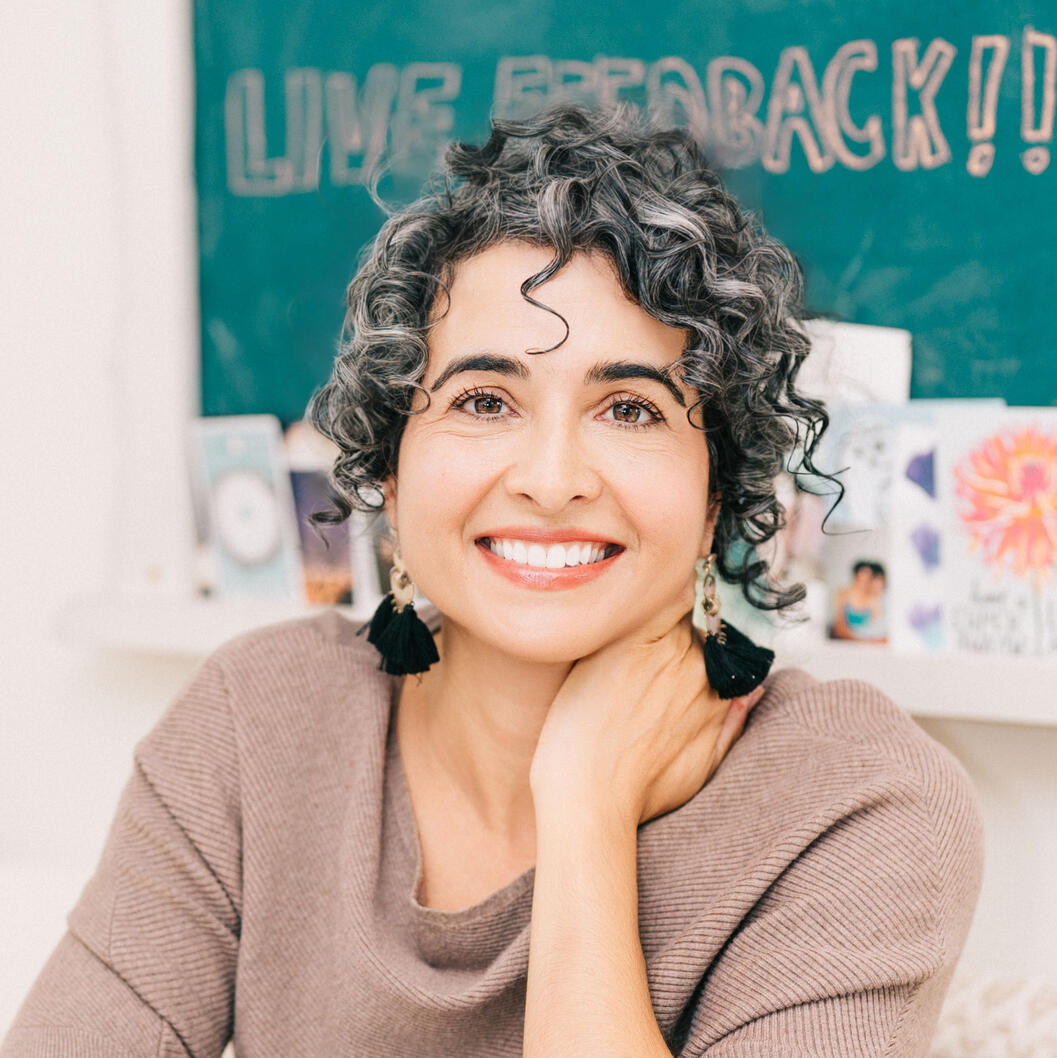
Camille Dumond
Process Oriented Facilitation, Mediation & Conflict Coaching
About
Deeply kind. Willing to shake things up.
I help people find the meaning and gifts in conflict.When conflict feels overwhelming, it can be hard to see what’s meaningful in it. I help people and teams find the gifts inside those hard moments: places where clarity, honesty, and connection are waiting to emerge.Camille: Latin/French origin meaning helper at the altar, or ceremonialist
Dumond: French origin meaning of the world
Living into my name, I work as a group facilitator, mediator, and conflict coach, helping people have the conversations that matter. My vision is that we find skillful ways to bring our deepest values to the conflicts of our times: allowing us to become a force for renewal, growth, and meaningful change in the world.In our work together, we’ll shine a light on everyday interactions to uncover patterns - developing the courage, tools and strategy to shift those that no longer serve us while drawing on the care and connection that already exist.We’ll build containers for dialogue: spaces where we can face difficulty with integrity, and practice the kinds of relationships we aspire to. This work cultivates not just skills, or concepts but an embodied sense of group life that feels integrated and humane. A space where we can experience both belonging and difference: talking about the things that matter with safety and candor.I draw on depth psychology, neuroscience, and alternative dispute resolution in my work. I hold an MA in Process-Oriented Conflict Facilitation, and MA in Adult Education, and an MEd in Counselling Psychology, am a CINERGY-trained conflict coach and certified Lewis Deep Democracy Level 1-3 Trainer, and am currently pursuing IMI Qualified Mediator (Q.Med) designation through the Canadian International Institute of Applied Negotiation.
Contact me to assess your situation!
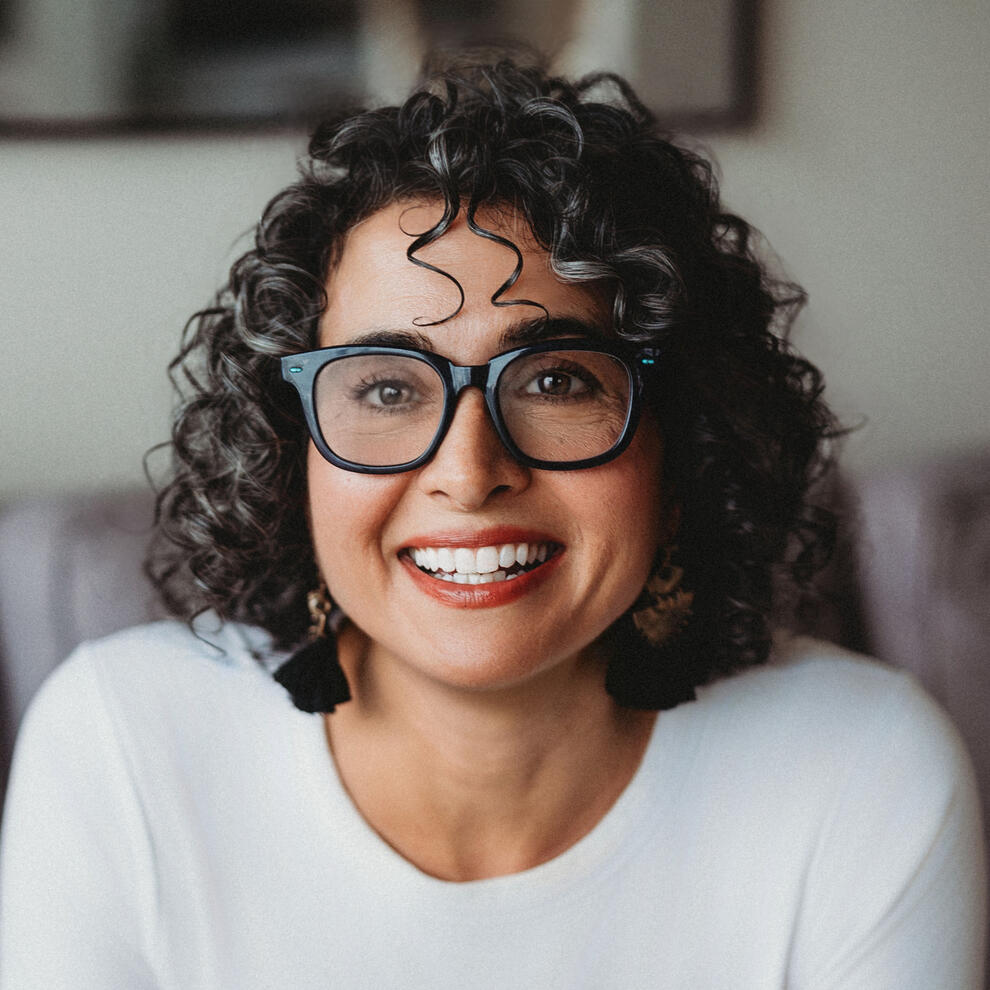
Coaching
Conflict has Intelligence
When tension arises, whether at work or a personal relationship, it can feel like the problem is outside of you. Yet often, the outer conflict mirrors something happening inside. I help you tune in to what’s happening beneath the surface. By slowing down and getting curious about your own reactions, new possibilities begin to emerge. Together, we will approach the conflict as a source of insight rather than only a problem to eliminate.What to ExpectA calm, supportive and candid space to explore what’s happening inside and around youGuidance to stay present with strong emotions or uncertaintyTools to recognize and work with repeating patternsSpace for new perspectives, creative options, and genuine relief to emergeI use a variety of approaches, including process-oriented facilitation and CINERGY Conflict Coaching (see below).
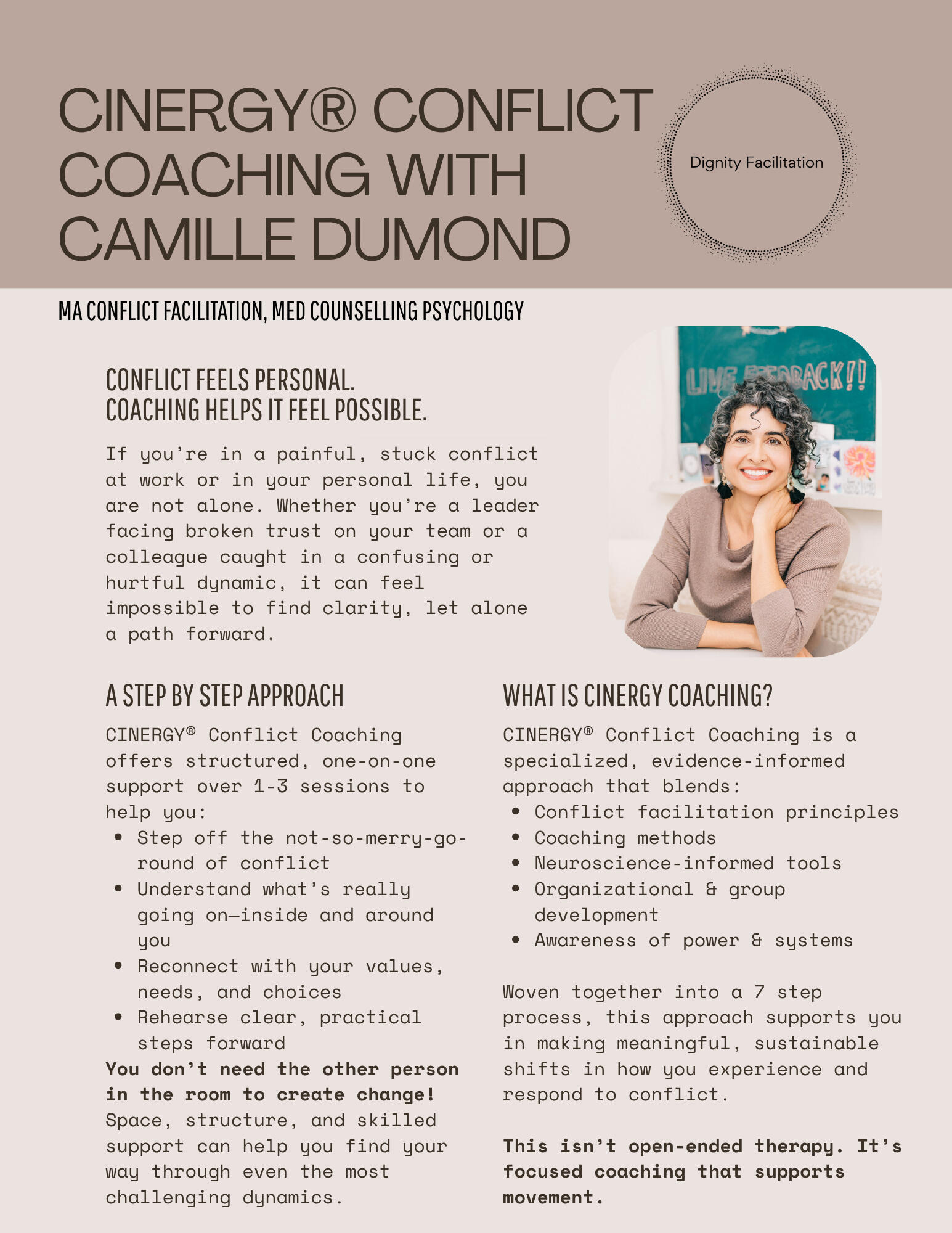
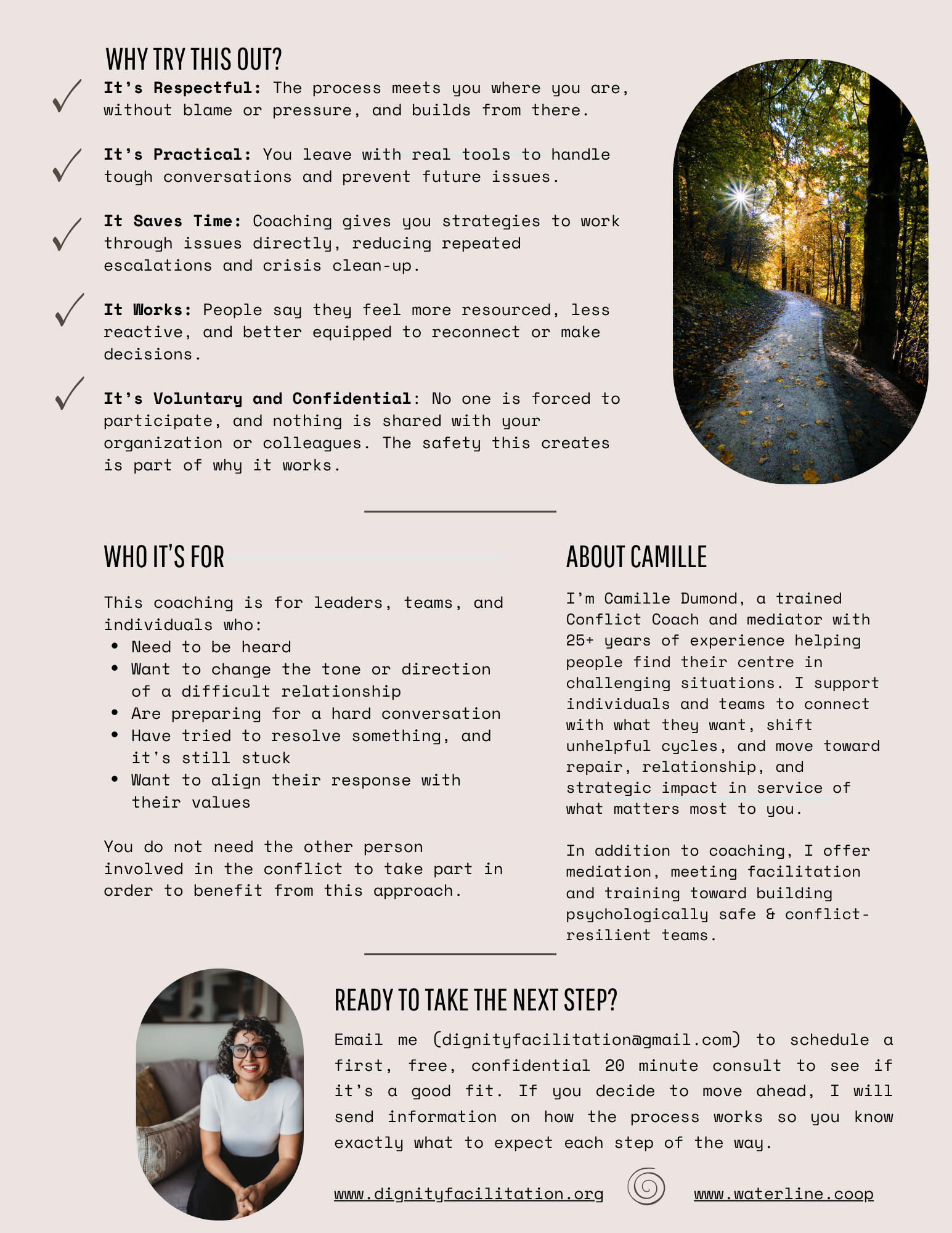
Foundations of Conflict Engagement Courses
(Levels 1-4)
Based on Lewis Deep Democracy
In collaboration with Waterline Consulting Co-Op
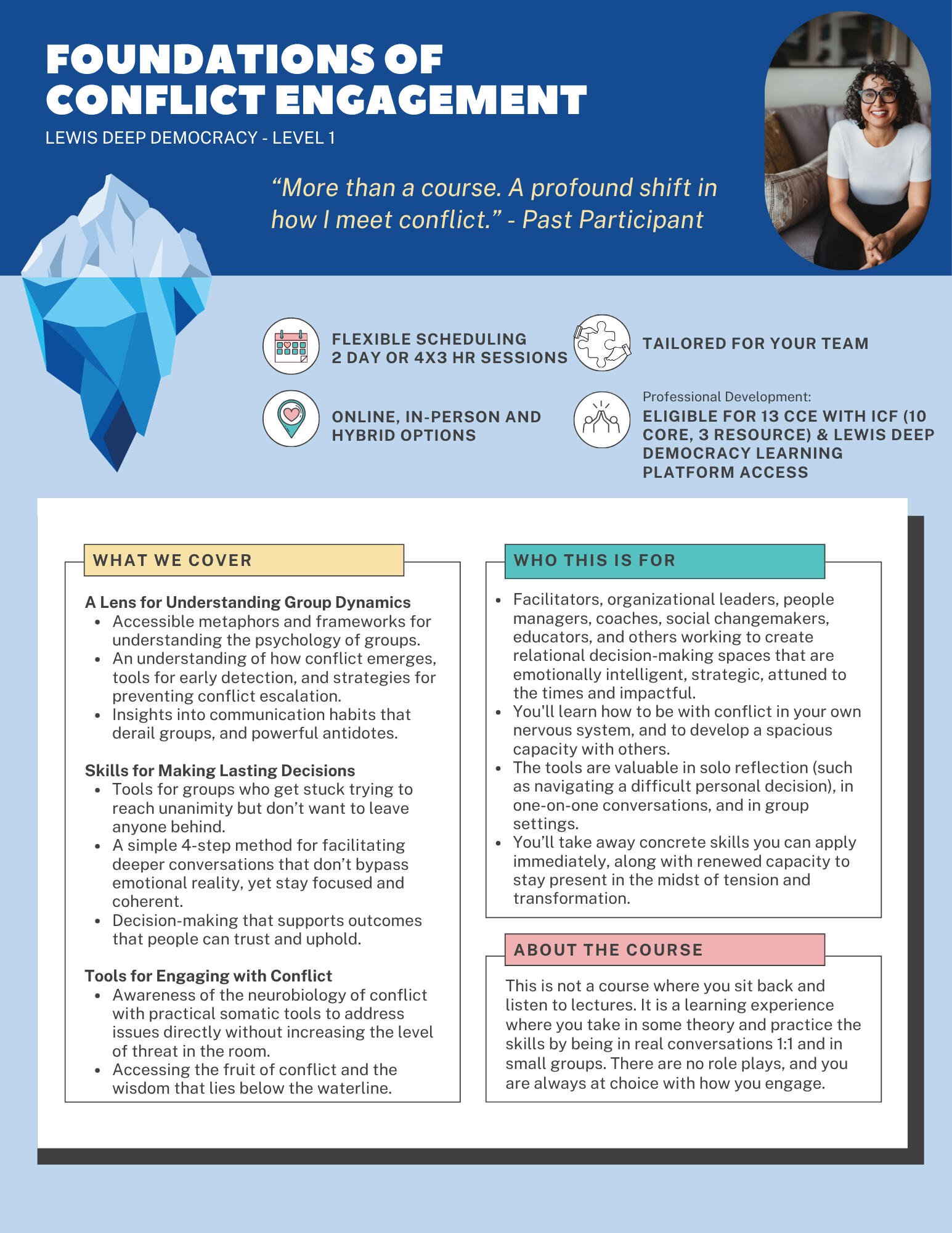
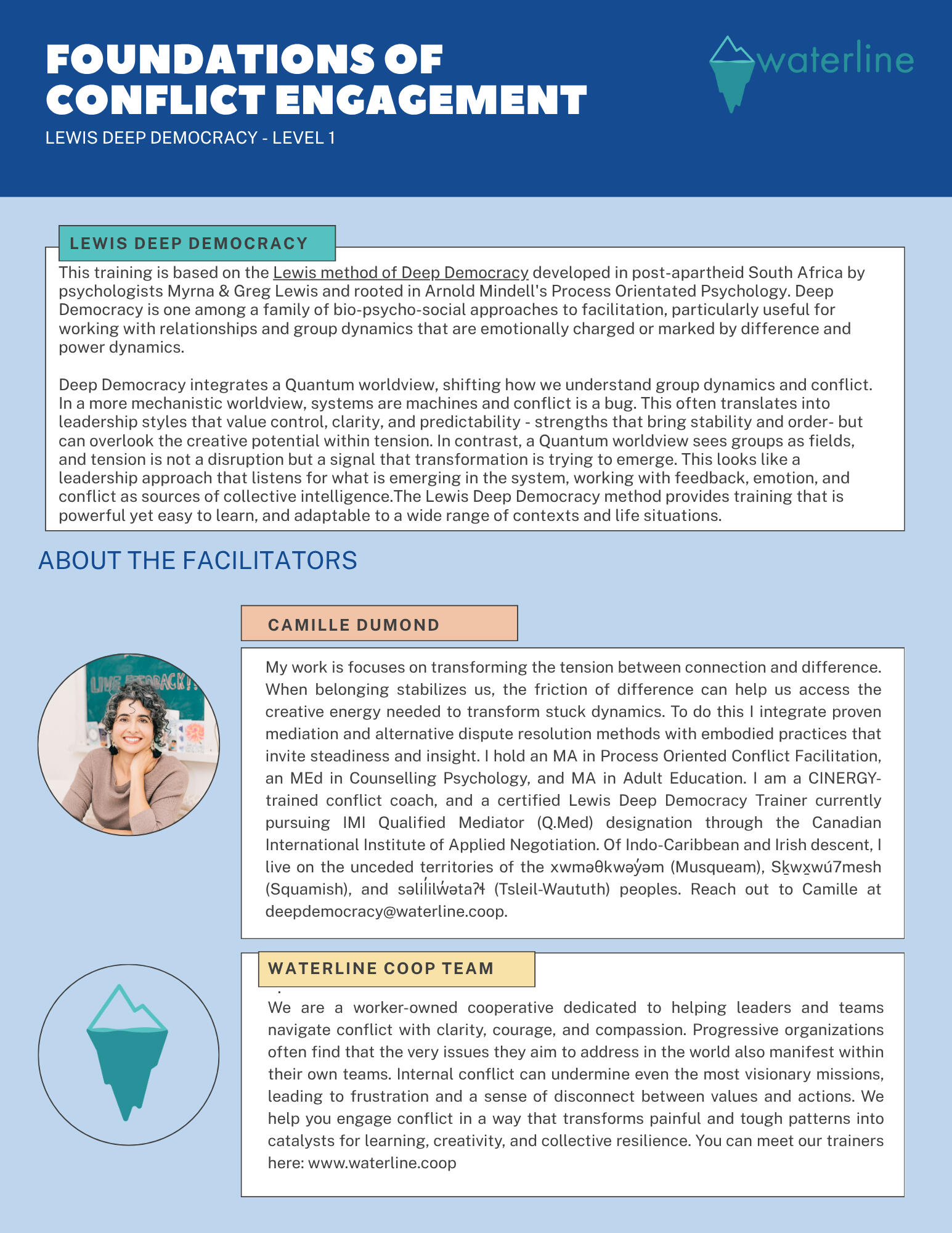
Contact us for a full schedule of Level 1-4 courses to level up your skills!
Want more clarity on a conflict you are facing? Try this free mapping tool. Take a few minutes to write or draw your answers to the questions. This is based on the tools we explore in our Level 1 Deep Democracy - Foundations of Conflict Engagement course.
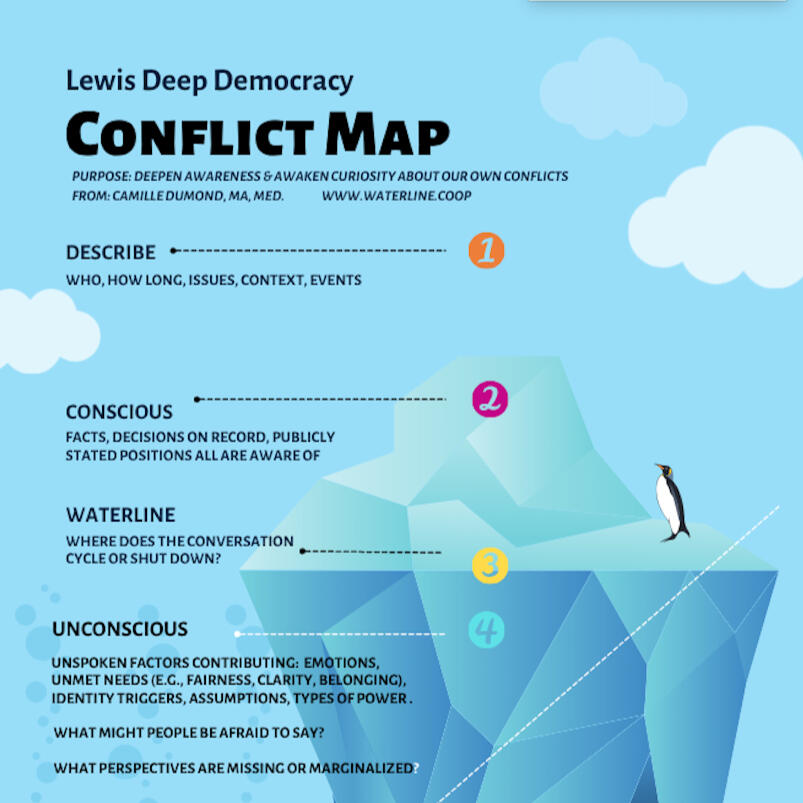
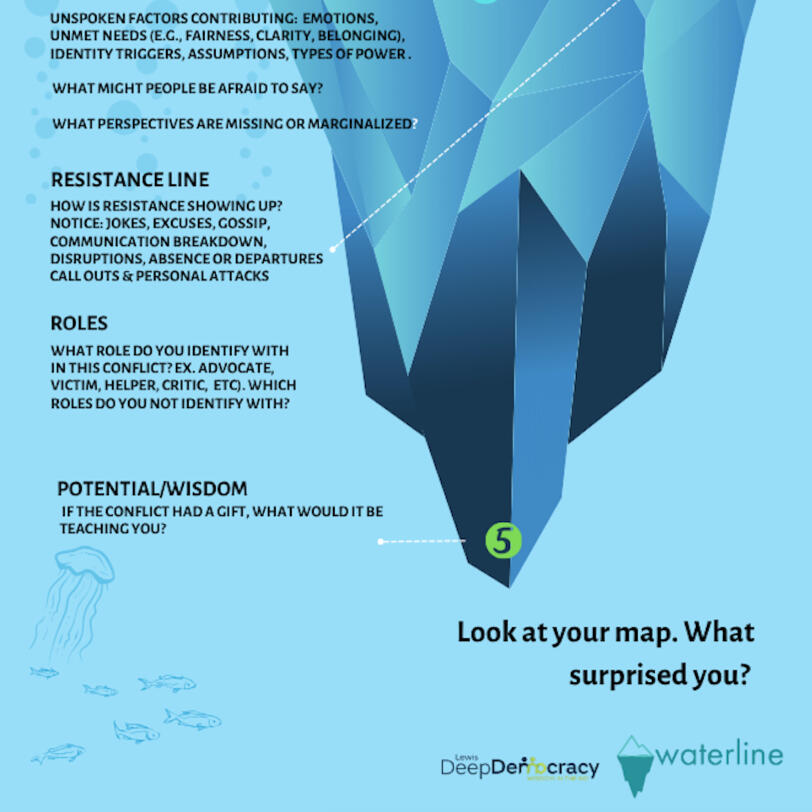
Be supported in community.Contact me for a free confidential consultation.
dignityfacilitation@gmail.com
Located on the unceded lands of the Coast Salish peoples – the sḵwx̱wú7mesh (Squamish), sel̓íl̓witulh (Tsleil-Waututh), and xʷməθkʷəy̓əm (Musqueam) Nations.
